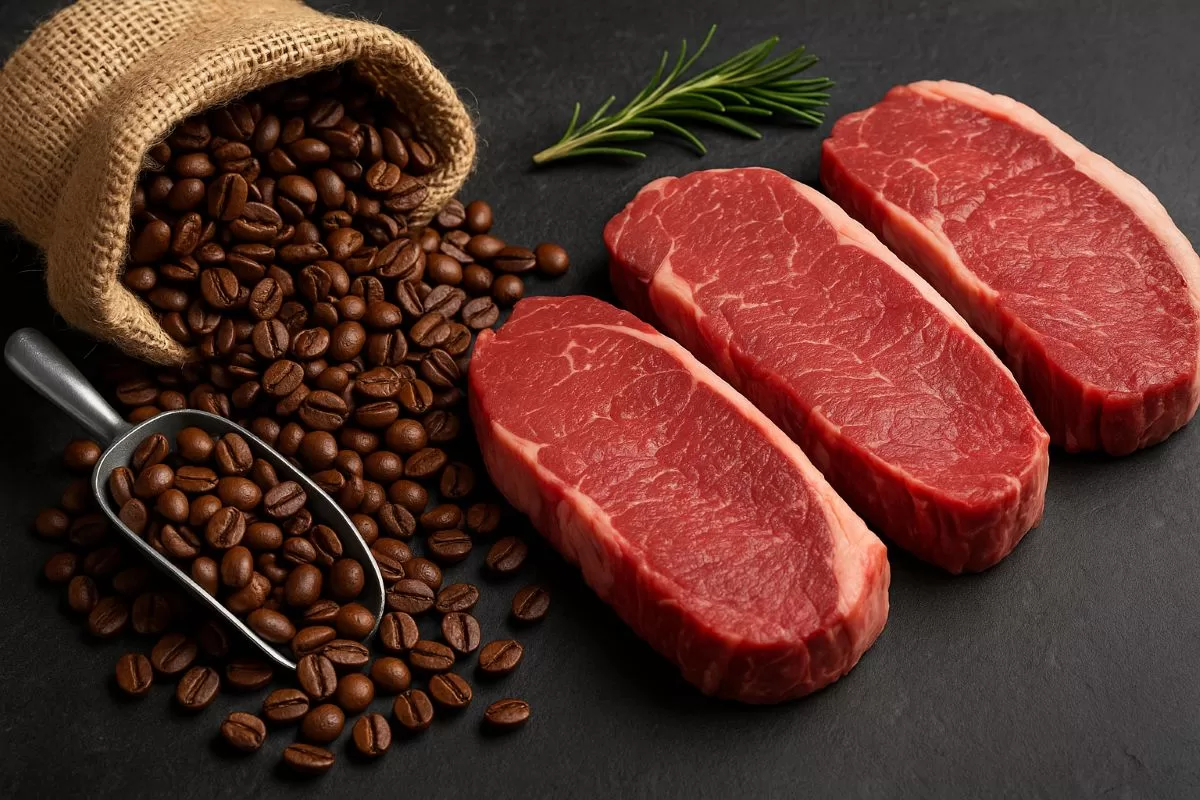
WASHINGTON,July 13 (WSH) — U.S. President Donald Trump announced on Friday that a 50% tariff on Brazilian imports will take effect starting August 1. The decision has triggered strong reactions from global markets, with analysts warning of possible price surges in key consumer products like coffee and beef.
Coffee Trade at Risk as U.S. Roasters Face Rising Costs
The United States is the world’s largest consumer of coffee and imported more than 8.14 million bags (60kg each) of coffee beans from Brazil last year—about 33% of its annual consumption. Brazil remains the world’s top producer and exporter of coffee.
“This level of tariff could effectively shut down the trade flow between Brazil and the U.S.,” said Michael Nugent, a veteran coffee trader and head of MJNugent & Co. in California. “Brazilian exporters won’t absorb it, and U.S. roasters can’t afford it.”
Following the announcement, Arabica coffee futures rose 1.3% on Saturday. Global coffee prices had already surged by over 70% in the past year due to supply disruptions.
U.S. Hamburger Industry Faces Beef Supply Shock
In addition to coffee, the U.S. food industry heavily relies on lean beef imports from Brazil to blend with domestic cuts for hamburger production. With domestic beef prices hitting record highs, Brazil has become a critical source of affordable meat.
According to official U.S. data, imports of Brazilian beef more than doubled in the first five months of 2025, reaching 175,063 metric tons—21% of total U.S. beef imports. If the 50% tariff is implemented, the effective duty could soar to 76%, severely disrupting supply.
“This new tariff would absolutely freeze the trade,” said Bob Chudy, a consultant to U.S. beef importers. “If there’s no change in policy, the U.S. will stop buying Brazilian beef altogether.”
Background: Return of Trump’s ‘America First’ Trade Strategy
The new tariff policy marks a resurgence of Trump’s hardline “America First” trade agenda, a hallmark of his first presidential term. Analysts believe this move may be aimed at energizing his political base ahead of the 2024 election by protecting U.S. agriculture and food production.
While such measures may support select domestic industries in the short term, they also risk inflaming inflation, destabilizing supply chains, and drawing retaliation from trade partners.
As tensions rise, economists and business leaders are closely watching whether the administration will pursue further trade actions, or if global supply chains will adapt swiftly enough to absorb the shock.




